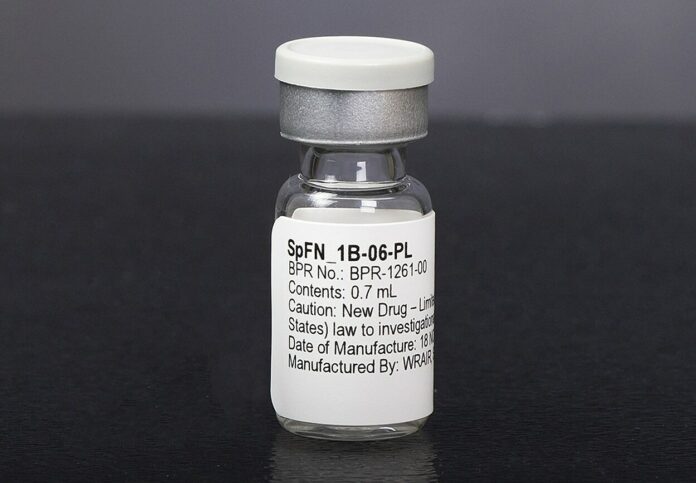The vaccine, called spike ferritin nanoparticle (SpFN), stands out in the COVID-19 vaccine landscape. Scientists developed a nanoparticle vaccine, based on a ferritin platform, which offers a flexible approach to targeting multiple variants of SARS-COV-2 and potentially other coronaviruses as well.
Pre-clinical studies indicate that SpFN induces highly potent and broad neutralizing antibody responses against the virus that causes COVID-19 infection, as well as three major SARS-CoV-2 variants and SARS-CoV-1 virus.
The phase 1 study is being conducted at WRAIR’s Clinical Trials Center and will enroll 72 healthy, adult volunteers ages 18-55. Volunteers will be placed into one of three groups, each receiving a different dose or schedule of the vaccine. As of June 11th , the 24 individuals have participated in the trial. Volunteers must meet certain inclusion and exclusion criteria—most notably that they have never been infected with COVID-19 or received a COVID-19 vaccine. All volunteers will be financially compensated for their time. A full list of inclusion criteria is available here.
WRAIR has a long history of developing safe, effective vaccines, having been involved with the development or testing of over 50% of U.S. Food and Drug Administration-approved vaccines.
“Even before recent COVID-19 variants were identified, our team was concerned about the emergence of new coronaviruses in human populations, a threat that has been accelerating in recent years” said Dr. Kayvon Modjarrad, director of the Emerging Infectious Diseases Branch at WRAIR who leads the Army’s COVID-19 vaccine research efforts and co-invented the vaccine with WRAIR structural biologist Dr. Gordon Joyce, an employee of the Henry M. Jackson Foundation for the Advancement of Military Medicine.
That’s why we need a vaccine like this: one that has potential to protect broadly and proactively against multiple coronavirus species and strains.
In addition to its focus on protecting against known and unknown COVID-19 variants, WRAIR’s vaccine also does not require extensive infrastructure to store and transport, remaining viable for extended periods of time in a refrigerator or even at ambient temperature. This advantage makes it ideal for resource poor settings.
Ultimately, WRAIR hopes to transition its vaccine to protect not just from COVID-19 but from all coronavirus diseases, known and unknown, to end the current pandemic and prevent the next one from ever beginning.

